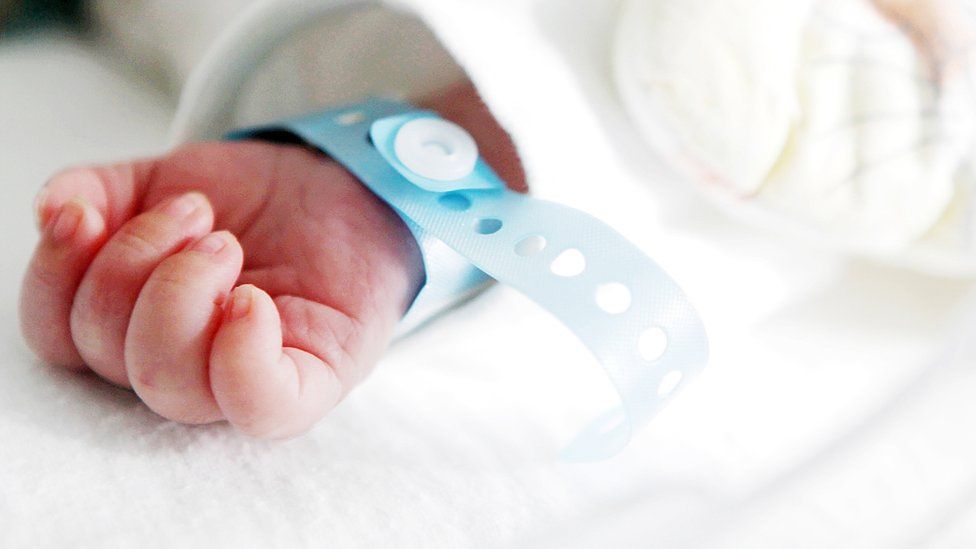Irish Birth Information and Tracing Bill becomes law
- Published

A bill aimed at giving adopted people "full and clear right of access" to their original birth certificates has become law in the Republic of Ireland.
The Birth Information and Tracing Bill 2022 was signed by the President of Ireland Michael D Higgins on Thursday.
It was hailed as "landmark legislation" by the minister for children.
But campaigners have criticised the bill, arguing its terms will mean some adoptees will still face barriers when trying to trace their birth identity.
That is because some adoptees will be required to attend an "information session" with the Adoption Authority of Ireland before they are granted access to their birth certificates.
These sessions will be mandatory in cases where an adoptee's parent has formally stated that they do not want any contact with their child who was adopted.
Campaign group the Clann Project has said one of the main purposes of these information sessions is to inform adopted people about the importance of respecting their parents' right to privacy.
The group described this rule this rule as "offensive" and discriminatory, arguing it meant adopted people "must have privacy explained to them".
However, the passage of the bill through the Oireachtas (Irish Parliament) last week was described as a "historic moment" by Children's Minister Roderic O'Gorman.
He said it "finally and conclusively addresses the wrongful denial of people's identity rights over many decades in this state".
What is changing as a result of the new law?
The Birth Information and Tracing Bill will, for the first time in Irish history, give adopted people a legal right to find out their birth identity.
Until now, parents who did not want to be traced had the right to block the release of information, meaning their children were not allowed to see their own birth documents.
The Irish government wanted to change the law to achieve a better balance between adoptees' rights to know their identity and parents' rights to privacy.
What happens if a parent does not want to be traced by their child?
Under the new law, a "contact preference register" will be set up through which families can express their personal wishes about whether or not they want contact with relatives from whom they were separated through adoption.
But unlike before, when a parent's preference for no contact also meant no personal information would be released to their child, parents have lost the automatic right to block the release of birth certificates.
From now on, even if there is a parental objection, birth certificates will eventually be released to adoptees.
What happens to people whose birth identity was falsely recorded?
There can be complications for people who were issued with incorrect birth certificates in an attempt to conceal their birth and the identity of their parents.
The government has promised to introduce "a range of new bespoke measures to address issues arising for people affected by illegal birth registration".
Included in the bill is a commitment to set up a "robust tracing service" to help people track down their family members.
Why are adoption rights campaigners objecting to the new law?
The Clann Project has argued that the rules governing the release of birth certificates to adopted people means they are treated differently from the rest of the population and that is unfair.
Its main objection is the requirement for adoptees to attend mandatory information sessions in order to access their birth information, in cases where their parent has said they do not want to be contacted.
"Birth certificates have been public records for over 150 years in Ireland," its website states.
"Anyone can visit the research room of the General Register Office and access the register of births without the need to attend compulsory meetings to have the importance of respecting people's privacy explained to them."
It warned that when the bill was passed, "the law in Ireland will require that adopted people must have privacy explained to them".
"This is offensive. This is discrimination," it said.
The group also expressed concern that the terms of the bill left too much room for interpretation about what type of information could be released to adopted people, arguing they should have full access to their personal files.
However, the minister for children said last week that the bill "overcomes decades of legal obstacles to provide a clear right for each person to full access to all of his or her information, - no redactions; nothing held back".
Related Topics
- Published12 January 2022
- Published14 June 2018
- Published23 July 2015